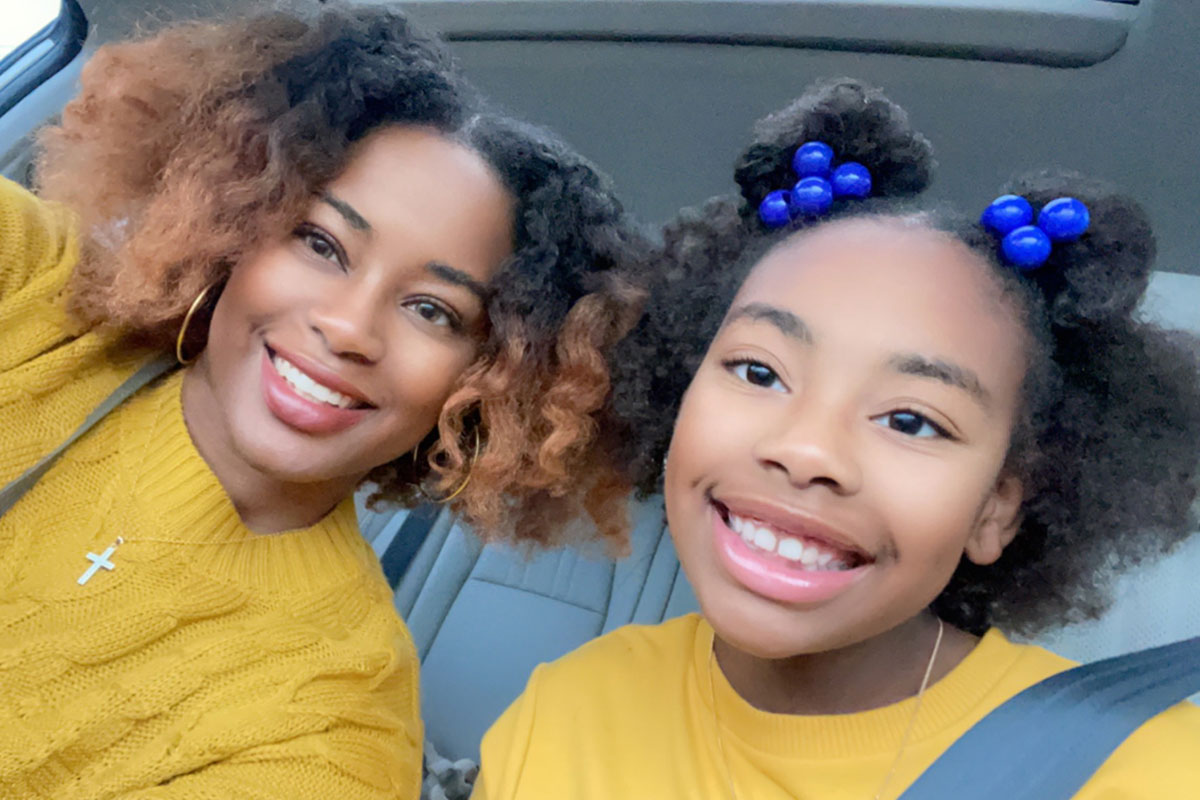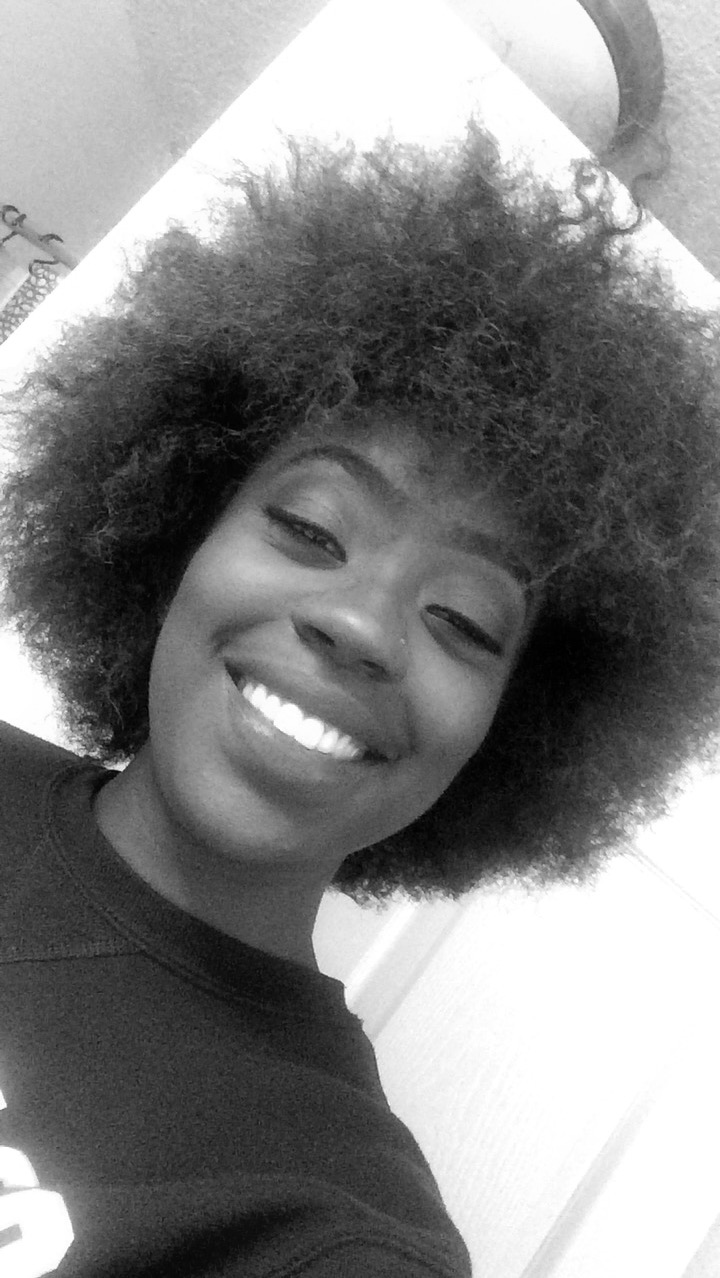JACKSON, Miss.—Hairstylist Tanesha Brown remembers well the day her daughter Sasha declared that she wanted hair like Elsa, a fictional character from the animated film, “Frozen.” Elsa is a white character with long, blonde, straight hair, and Sasha is Black. Feeling like she needed her daughter to understand that her hair was beautiful the way it is, Brown decided to wear her hair naturally alongside Sasha.
As a military family, the Browns move around periodically, and wherever they move, her daughter has attended predominantly white schools. Her daughter gets her hair styled frequently, alternating from braids to twists to coils every week, catching the attention of people at school.

“How come your hair is different?” a classmate asked Sasha. “You changed your hair again. Why do you do that? Stop changing your hair.”
Upset, Brown’s daughter replied, “Well, my hair just can’t lay flat like yours.”
The friend made another comment about her daughter’s hair being big, so Brown suggested she tell her next time, “The bigger the hair, the closer to God.”
Rooted in White Supremacy
The smell of fresh, buttered popcorn filled the lobby of the Alamo Theater in the historic Farish Street district in downtown Jackson, Miss., on Feb. 17, 2023, as Black mannequins adorned each corner of the stage with various natural hairstyles on their heads: afros, crowns and ponytails. A runway jutting out from the stage showcased various designers and their fashions throughout the Crown and Glory Beauty Expo.
Lasuntae Lashley planned the event to both raise awareness for the C.R.O.W.N. Act, legislation passed in 20 states so far that has been pitched at the federal level to end hair discrimination. The expo celebrated natural hair and Black beauty through music, fashion, poetry and food. As part of her preparations, the hairstylist reached out to her industry friends, local and abroad, who responded with enthusiasm.
“I wanted to make sure that during this event everybody was represented,” the hairstylist told the Mississippi Free Press. “It was for our state, but so many people have started here and moved abroad and are doing bigger things. And so I wanted to definitely reach out to people who have roots here in Mississippi, whether they still live in Mississippi or not.”
“I wrote the vision, made it plain just like the Bible says, and I ran with it,” she added. “When I put my mind to something, nothing’s going to stop me.”
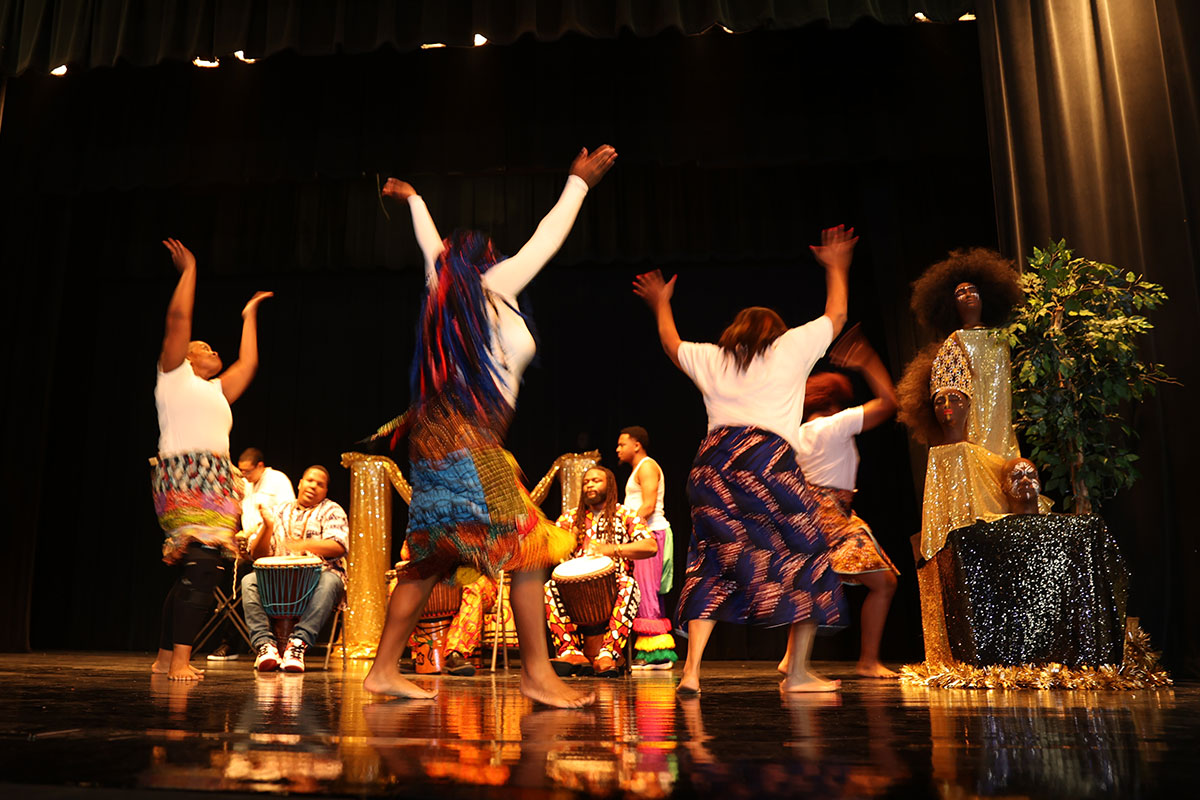
The event included panels featuring experts in the fields of hair care. Hosts Jessica James Henry and Marcus James introduced the first panel of the night, which Jackson comedian Rita Brent moderated.
“Will you talk to us a little bit about what the C.R.O.W.N. Act is, and what are its implications on hair discrimination?” Brent asked the panelists.
“When we talk about what the C.R.O.W.N. Act is, it’s to forbid the discrimination against Black hair, against texture-style hair,” Mississippi Black Women’s Roundtable Executive Director Cassandra Welchlin answered.
“We know hair discrimination impacts Black people, but even more so, Black women and girls,” she continued. “Eighty percent of Black women and girls are discriminated against around the country because of their hair, and we know currently there is not a national law right now that will prevent hair discrimination.”
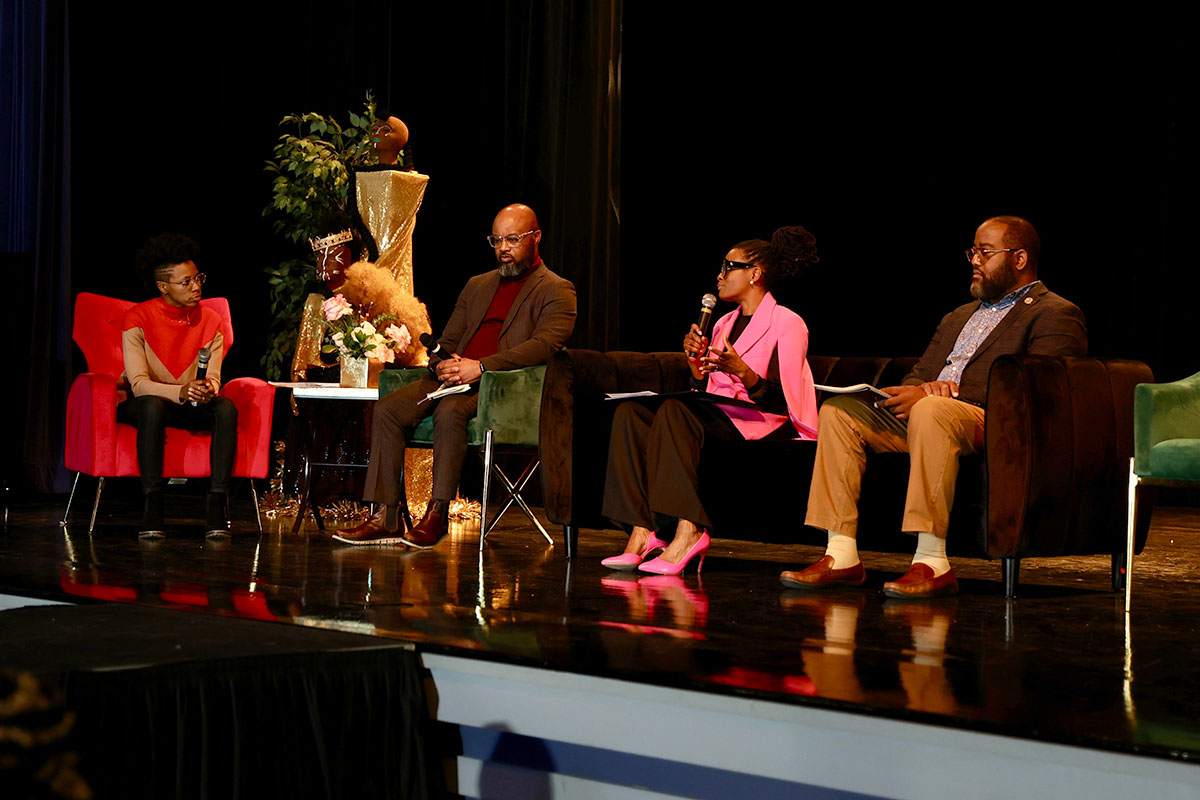
Hair discrimination is rooted in white supremacy, Welchlin posited, stating that Black people have been dealing with this discrimination for more than 400 years. Twenty states have implemented the C.R.O.W.N. Act, with Louisiana being the most recent. The U.S. House of Representatives has passed the act, but the Senate has not. If the Senate passes it, however, and the president signs the law, discrimination against Black hair will be illegal nationwide.
“When you say Black hair, what do you mean?” Brent asked Welchlin. “Because we are extremely versatile in the way we wear hair. How is it even defined?”
“Black hair means locs, braids, in its natural state,” Welchlin responded. “It means afros, bantu knots—that’s what natural hair is. It may be kinky, curly, it may be some people with straight hair, but it’s in its natural state.”
Respectful and Open World for Natural Hair
While many revere and celebrate Black hair and hairstyles, others view natural hair differently, which can manifest into the kinds of hair discrimination so many Black women, especially, have encountered..
The Crown Workplace Research Study found that Black women’s hair is two-and-a-half times more likely to be perceived as unprofessional and that more than 20% of Black women between the ages of 25 and 34 have been sent home from work because of their hair.
Personal-care brand Dove co-founded, and then-Sen. Holly J. Mitchell, D-Calif., drafted, the C.R.O.W.N. Act in 2019. Standing for “creating a respectful and open world for natural hair,” the bill would extend protections for hair textures and protective styles to ban discrimination on the basis of hair presentations commonly affiliated with certain racial and ethnic groups.
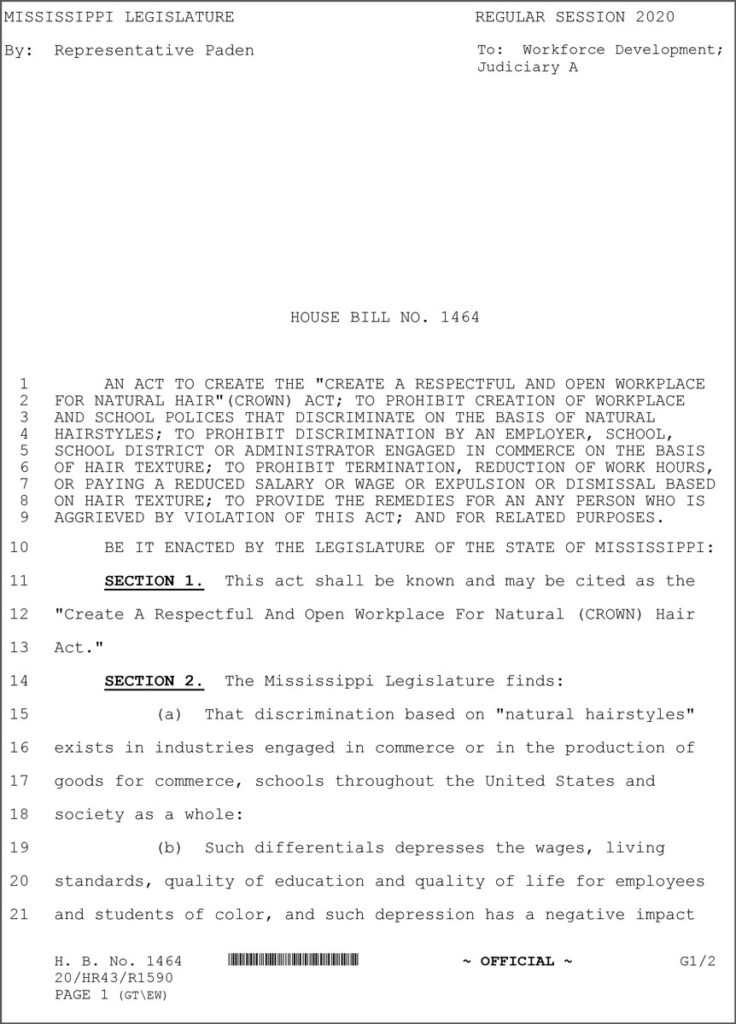
In 2018, Faith Fennidy’s school expelled her for having braided hair extensions, for example. About two years ago, Fennidy’s family reached out to Lashley for help in getting things moving further with the C.R.O.W.N. Act.
Congresswoman Bonnie Watson Coleman introduced the federal bill H.R. 2116 to the U.S. House of Representatives, and Sen. Cory Booker introduced S. 888 to the U.S. Senate in March 2021. On March 18, 2022, the federal C.R.O.W.N. Act passed in the House. On Dec. 14, 2022, the bill was brought to the Senate floor, but did not receive a vote, forcing it to be reintroduced in the 2023 legislative session.
“We were trying to get some things moving back then, and with my work and travel schedule, it was really hard,” Lashley explained.
“It was a little challeng(ing) at the beginning, but Faith’s mom reached back out to me again and was like, ‘We have roots here in Mississippi, so getting the C.R.O.W.N. Act passed is really important to us.’”
Part of Their Culture and In Their Blood
Growing up, Lasuntae Lashley and her siblings could always count on their parents faithfully driving them each week to the barbershop and hair salon that their uncle and aunt owned, respectively, to ensure their hair received regular maintenance and styling. The routine was part of their culture and in their blood, she said.
“I’ve always celebrated my mom and appreciated my mom for that because she was really big on us not being taken care of just in the home, but making sure that wherever her babies were, that we look good,” Lashley said. “It’s making me kind of feel bubbly now just thinking about it, just how hard my mom worked.”
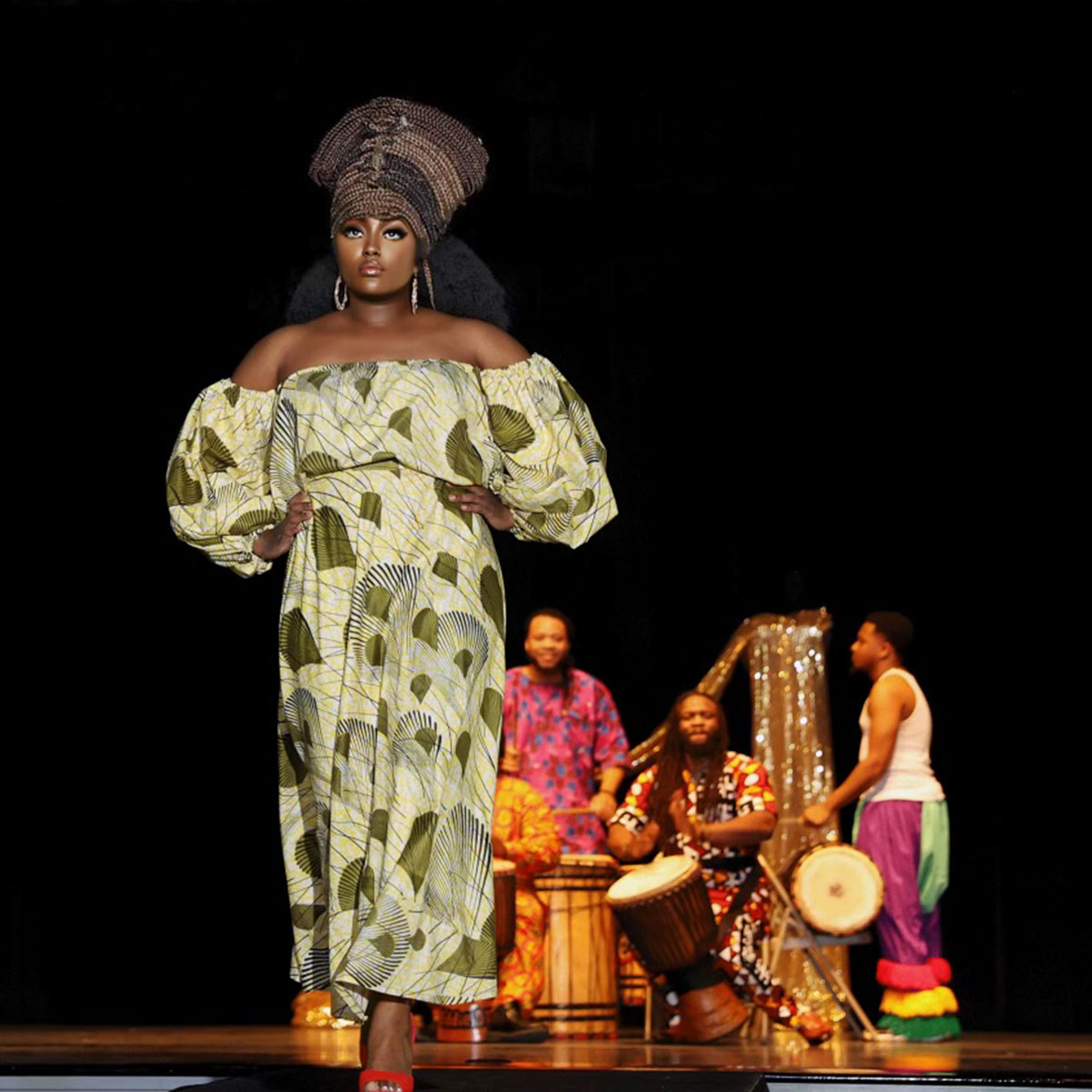
Fast forward years later to 2006, Lashley obtained her license from the Mississippi State Board of Cosmetology and opened Salon Exclusive in Jackson, Miss. Her aforementioned uncle, who cuts hair in Las Vegas, encouraged her to get into the business. Locs and braids were her two favorite hairstyles to perform on people as she was coming up.
“My family members were my mannequins when I first started doing hair—my grandmother, my aunts, my little cousins, my cousins who were my same age,” she recalled.
“I did a lot of braiding and locs, even before that stuff got popular. I can even remember (that) people were just blown away at seeing starter locs.”
‘Your Hair Needs Straightening’
Jackson State University Title III Programs Executive Director Dr. Mitchell Shears has not personally witnessed hair discrimination, but he has learned of various incidents through research from Dove and conversations he has had with others.
“The research from Dove that they recently conducted (included) statements from parents saying that they had to come to school to address where students asked to touch a young lady’s hair and said it was nappy,” Shears described. “And so it made her feel sad.”
“Even teachers saying to students, ‘Your hair needs straightening,’” he continued. “Also, a young lady with a short haircut, people (said), ‘Your hair looks like a little boy’ or ‘Your hair looks electrocuted.’”
Last year, officials almost disqualified Bruce, Miss., high-school student and powerlifter Diamond Campbell from the state championship because her braids featured beads, telling the athlete that she would not be able to compete if the adornments were not removed Campbell’s teammates helped remove the beads, moving as quickly as possible to avoid disqualification, Welchlin recounted to the audience.
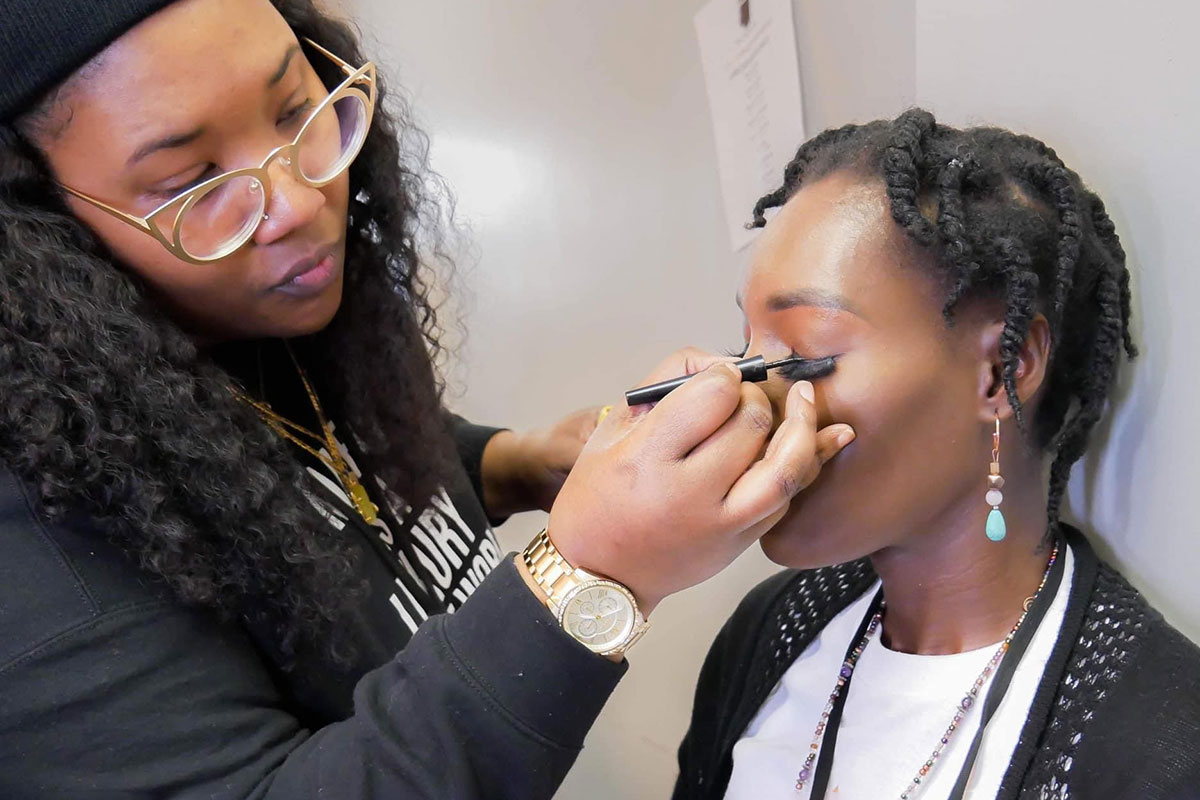
Mississippi Rep. Orlando Paden has faced difficulty getting the legislation brought up in committee. House Speaker Philip Gunn assigned the bill to the workforce committee, which has three women, Paden explained.
“When I met with the chair … (to) say I have a great bill here, this affects individuals in my community, the entire state, the United States, even the world, the chairman said he was not going to bring up anything that was confrontational during the election year,” Paden said.
In 2020, Rep. Paden authored H.B. 1464, which finds that “discrimination based on ‘natural hairstyles’ exists in industries engaged in commerce or in the production of goods for commerce, schools throughout the United States and society as a whole,” the bill reads.
The act died by committee in the House on March 3, 2020. The bill was referred to the Senate on Jan. 16, 2023 and died by committee again on Jan. 31, 2023.

The issue of hair discrimination significantly affects Paden’s area, the Delta, where Black women comprise a large portion of the workforce. Each semester, Paden teaches a workshop for the cosmetology and barbering program at his local community college, during which time he educates students and instructors about the process of the Legislature in the state.
“If we had those kinds of policies, people like Diamond (Campbell) would not be harmed,” Welchlin said. “Our hair is personal to us. To me, those are some of the things that (the C.R.O.W.N. Act) would prevent, and it would cause us not to have low self-esteem or question who we are as women, as men, as Black people.”
Miseducation About Black Hair
While earning her cosmetology license, Tanesha Brown attended both a predominantly white and a predominantly Black school, both of which lacked education on the full scope of Black hair. To her memory, only two chapters taught about Black hair, taking up about a week’s time.
“Even in that education, some of it is miseducation because they definitely don’t really understand,” Brown said. “The science part of it is the same; the technical part of it is not because I do both caucasian and Black hair. The rules are just simply not the same.”
Brown and others have been visiting cosmetology schools to work on getting textured-hair courses mandated as a part of the practical exam needed to obtain a license to work on hair. As of now, stylists do not have to possess knowledge on natural hair to acquire their licenses, she said.
“Louisiana is the first state that you have to know how to cut texture hair and style texture hair on your practical,” she explained. “No other state has it right now, so that’ll be a big help with the C.R.O.W.N. Act to get that started.”
Cinematographer and hairstylist Antonio Terrell has not faced hair-based discrimination as he mostly spends time behind the camera. He has, however, witnessed incidents on set where hairdressers did not have any experience working on Black hair or rushed to create something that did not look good.
“There was one time I was on set, and the lead actor said, ‘I wish I’d known you were a hairdresser. I would have let you cut my hair,’” Terrell recalled the actor telling him. “The head stylist put a part in the guy’s hair about the size of my finger, and he had to wear it.”
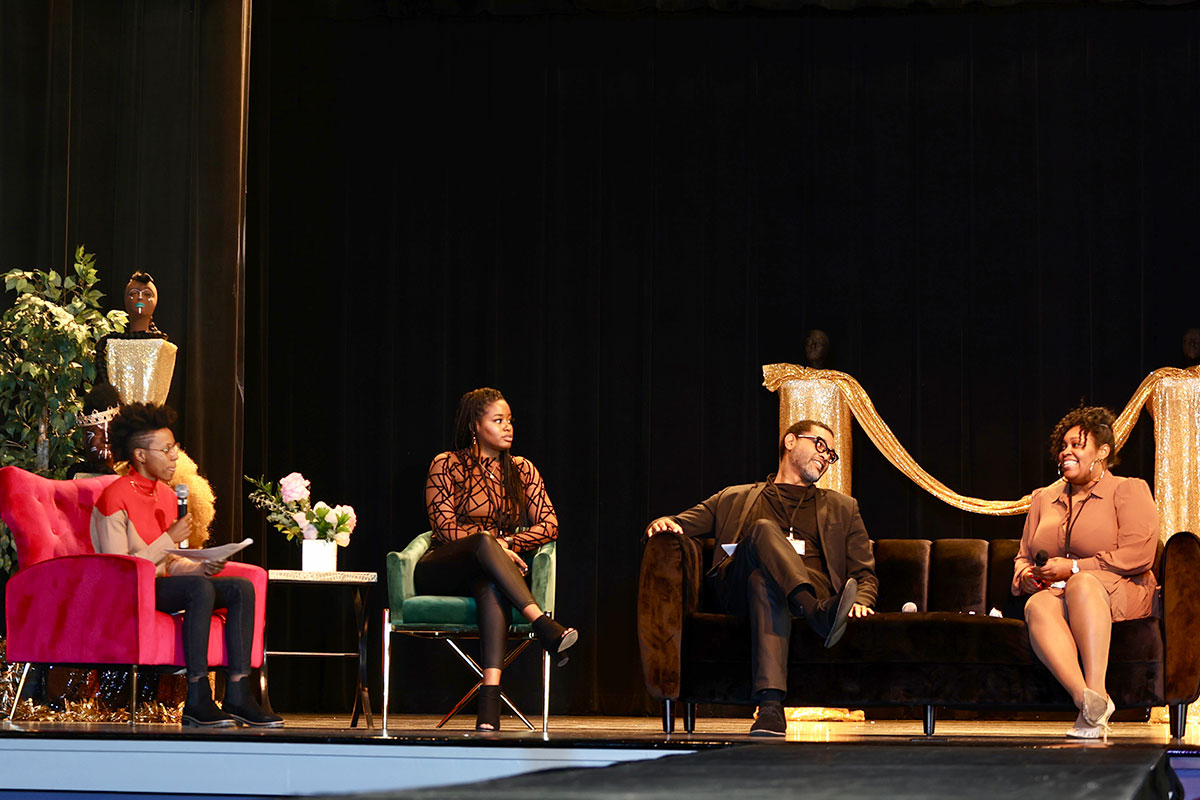
Terrell also encouraged more Black hairstylists to apply for productions because most of the time he sees about one or two Black hairstylists on sets. Although getting in the door can mostly depend on who you know, a way to circumvent that barrier can be to apply as a production assistant and work your way up, he suggested.
“I know I took some gigs just as a production assistant just to get their call sheet,” the former barber said. “There’s one thing about that call sheet: You got everybody’s number, everybody’s email address … so that’s when you just start networking and working your way around.”
“There was a recent report that Black women who had relaxers were susceptible to fibroids and things like that. And now learning that the chemicals that came with relaxers could be harmful to Black women, could you give us some insight on that? Like is there truth to it?” Rita Brent asked Dr. Tammi Taylor.
The American Journal of Epidemiology conducted a study that found that perms increase the risk for uterine fibroids. From 1997 to 2009, the study monitored 23,000 premenopausal women, and Black women proved two to three times more likely to develop uterine fibroids. Eighty percent of Black women develop fibroids over their lifetimes.
“Yeah, it’s a lot of truth. All the chemicals in there are really bad. It’s a lot of acidic properties and chemicals in those products,” Taylor answered. “I know I used to get a perm from when I was 12 until I was about 23, but luckily I’ve never had fibroids.”

Passing the C.R.O.W.N. Act is important, its supporters say, because many people do not know this information and should be aware of the chemicals in products that big companies sell to make big bucks. These dangers are the reason why Taylor created her own line of products through her business, Hair Luxury Company.
“My hair products are 100% vegan-friendly; they’re organic,” she explained. “I teamed up with a cosmetologist here. She taught me a little bit more about the chemistry of the hair.”
“I’m a microbiologist, so with the chemicals in the perms, they tend to cause inflammation of the hair and scalp,” Taylor continued. “Our products stray away from that. We try to detox the scalp to create a healthy scalp, so your hair will be really healthy.”
‘Fashion, Music and Poetry’
After the panels, Alkebulan Music Philosophy performed traditional West African music with drums and xylophones, decked out in bright African dashikis and blue jeans. Dancers would periodically join them on stage, performing traditional African dances in skirts while barefoot.
Audiences had the pleasure of seeing fashions from across the country and the world including vintage T-shirts, jeans, jerseys and hats from Richmond, Va., designer Encore Vintage and the men’s street clothes of Atlanta, Ga., designer OSO Streetwear. Hyogo, Japan, fashion brand owner Irie Vibes showcased her vintage kimonos on various Black models, who were also rocking natural hairstyles from locs to braids to afros.
Southern representation was on full display with New Orleans designer Red Rose Designs, who presented hoodies and sweatshirts for more casual wear and glittery jumpers and catsuits for the ladies. Mobile, Ala., designer Guru Designs mixed art and fashion as models walked down the runway in custom pants, dresses, shirts and skirts with unique African printed fabrics and bright colors.
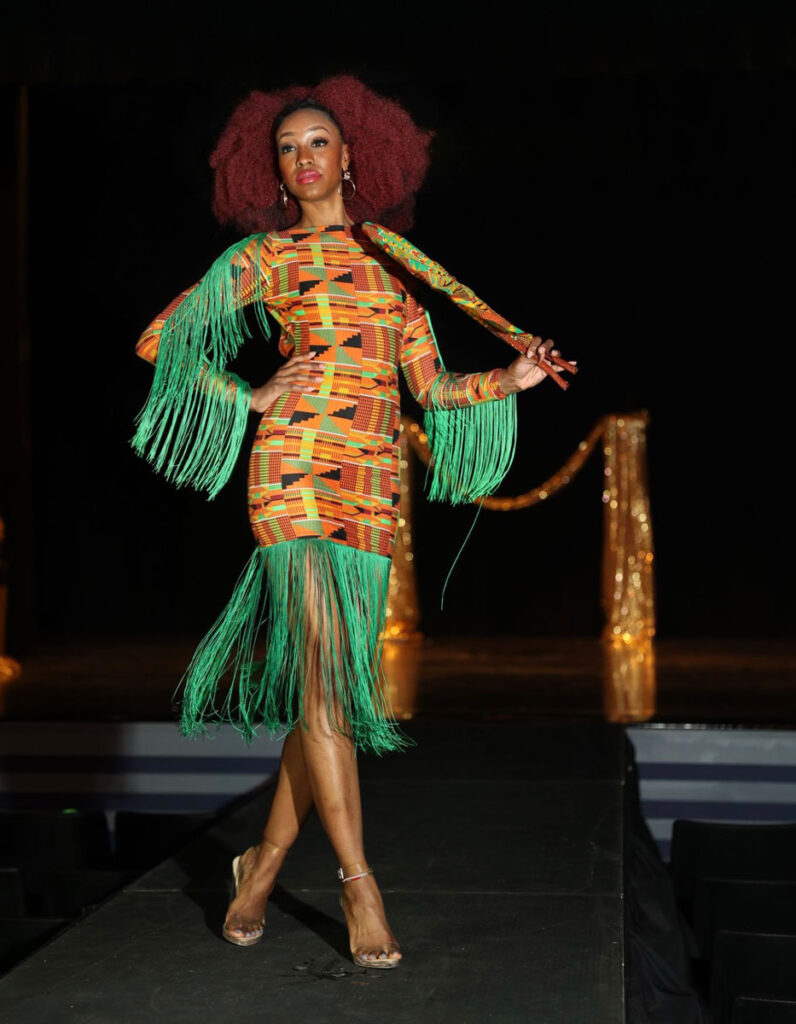
Atlanta designer Quad Clothing Company provided a cache of chic business-casual looks in the form of eye-catching suits in red, black, white or combinations of those colors for men and women. Van Miller International, another Atlanta designer, had models walking the runway in her classic couture pieces.
Brooklyn, N.Y., designer Kemi Five Studio presented a unique line of jeans and dresses that uses kente prints mixed with denim and sekere. Nigerian designer BBartistry had models rocking her colorful, uniquely patterned dresses for the crowd.
Poets Erica Barnes, Mae The Artist, Jamee McAdoo and Victoria Washington performed poetry dedicated to uplifting Black women and their natural hair while condemning hair discrimination and those who practice it.
Tulsa, Okla., hairstylist Mizz Lizzy and Jackson, Miss., stylists Sheka Epps and Dr. Shalonda Quinn gave live hair demonstrations for various ways to style natural hair. Meanwhile, Jackson barber De’Angelo Turner, also known by his moniker, Dr. Head Turner, cut hair at the expo.
‘Making Black Beautiful’
After receiving a positive reception to the Crown and Glory Beauty Expo, Lasuntae Lashley has spoken with Rep. Orlando Paden and Rep. De’Keither Stamps about hosting a similar event at Jackson State University. The hairstylist has an upcoming meeting with both lawmakers about what the next steps are in raising awareness and promoting Black beauty.
“A lot of times, we do things in our culture that doesn’t shine a good light on us, so we want to do something that keeps the momentum going because February is represented as Black History Month, but everyday is Black history for us,” Lashley told the Mississippi Free Press last month. “We’re looking at some events that are really going to rock the city.”
The stylist said she uses hair and fashion as a vehicle to get people in the room because people love beautiful hair and beautiful fashion. She is excited that the Crown and Glory Hair Expo not only woke people up about the C.R.O.W.N. Act but that it also got Black people rejuvenated around making Black beautiful again.
“You would think that us in the South would love and appreciate and just let people be in their natural state,” Lashley said. “You would think that that would be something that we embrace, but that is so not the case.”
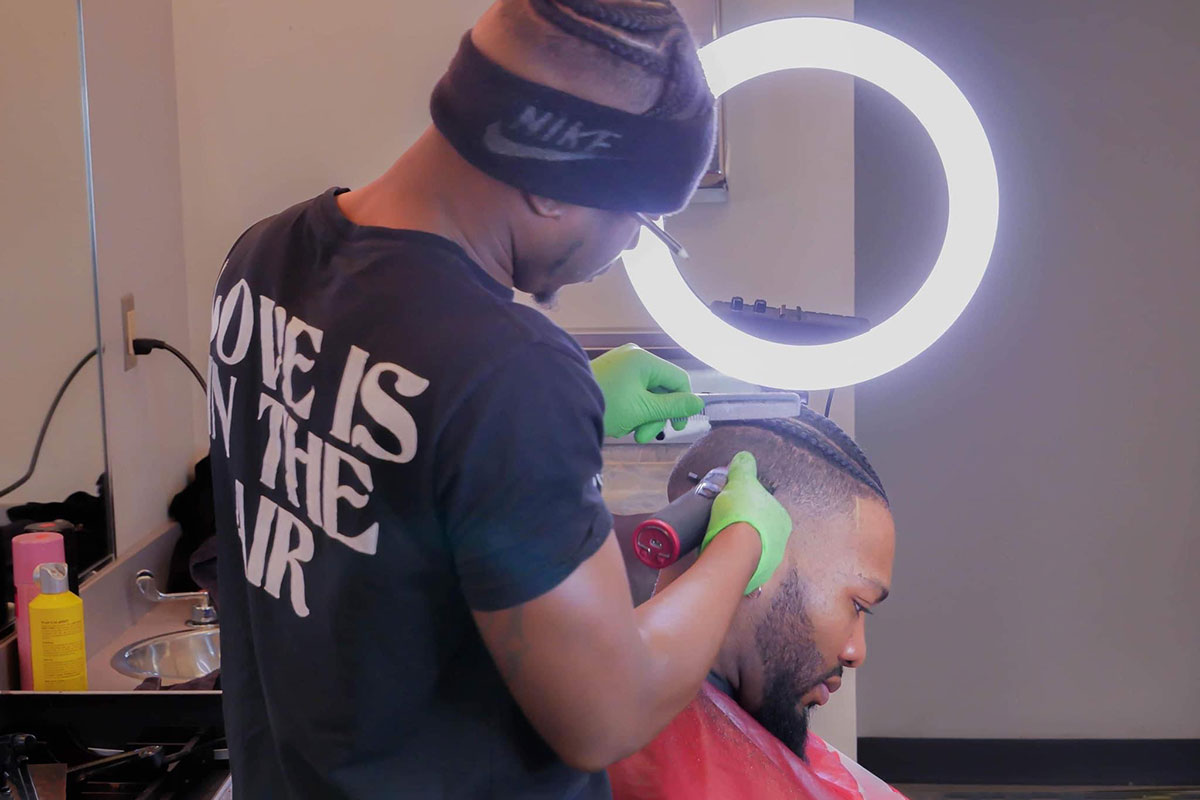
When Lashley travels to other cities for work, particularly northern cities, she observes the lack of bias surrounding hair. People are not losing on opportunities or having to straighten their hair due to hair discrimination as often, she observed.
“A lot of people came up to me and said, ‘We haven’t seen this (Crown and Glory Beauty Expo) here in Mississippi or seen this in Jackson before.’ And that gives me a lot of motivation; that makes my heart smile because I pride myself on utilizing the experiences that I’ve had and bringing them back to my people,” Lashley said.
“People perish for the lack of knowledge, and we just don’t understand that what we’re doing is suppression.”
To keep up with updates on the C.R.O.W.N. Act and get involved in the fight to get the act passed, sign up on Mississippi Black Women’s Roundtable here. Sign the C.R.O.W.N. Coalition’s petition to help end hair discrimination here.

